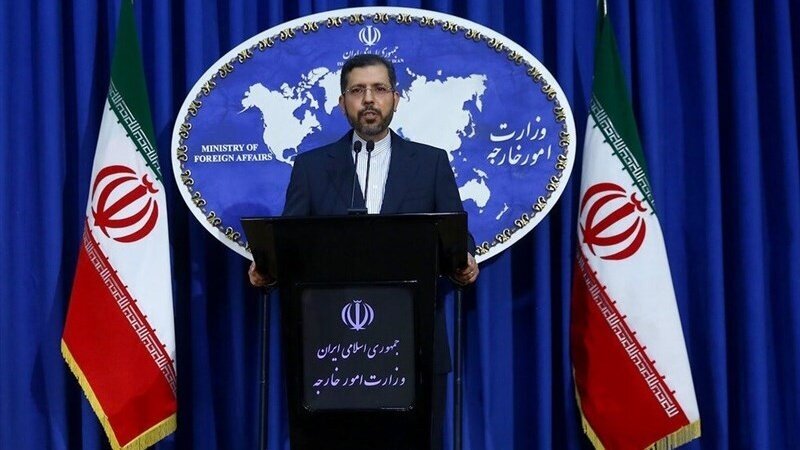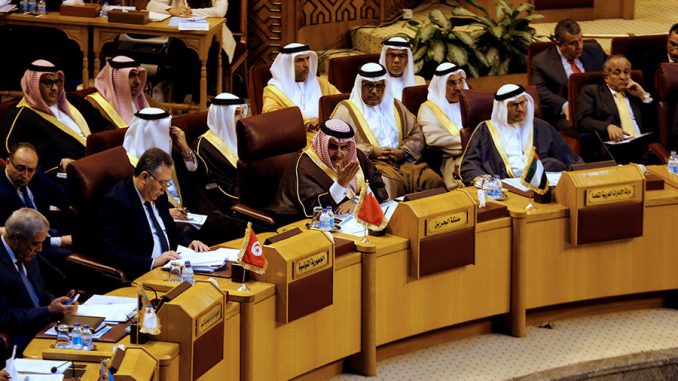I recall walking the halls of the United Nations and being told by concerned diplomats from the Global South that the wrath of the United States was not going to be slaked in the battlefields of Afghanistan and Iraq.
In 2002, US President George W. Bush announced that three countries belonged on his Axis of Evil – Iraq, Iran and North Korea. An illegal US war against Iraq the next year was the opening salvo against this so-called Axis. Threats against Iran and North Korea continued as the fires burned across Iraq. The governments in Tehran and Pyongyang worried about what was to come next.
I recall walking the halls of the United Nations and being told by concerned diplomats from the Global South that the wrath of the United States was not going to be slaked in the battlefields of Afghanistan and Iraq. More seemed to be demanded by Washington.
It appeared in the early years after the war on Iraq – in 2005-05 – that the United States would be able to vanquish all those whom it saw as enemies, with the gunsight pointed not only on Iran and North Korea but also on Venezuela. A coup attempt against Venezuela – pushed by the United States – had failed in 2002. The coup failed largely because the democratically elected government of Hugo Chavez as well as solidarity from Latin American peoples and governments across the hemisphere came to the defence of the Venezuelan people. Fingers itched to try again in Venezuela and to dispatch the governments in Iran and North Korea.
Israel’s war against the Lebanese people in 2006 – with the main target being Hezbollah – failed entirely. It was part of the US attempt to weaken Iran. Dirty tricks against Syria came alongside the Syria Accountability Act, passed by the US Congress in 2003 and then renewed each year. Assassinations of Iranian scientists inside Iran by unknown forces (most likely by Israel’s Mossad and the US’s CIA) presaged more dramatic strikes. Sanctions against these countries, with the vice turned tightest against North Korea, began to hurt the peoples of these countries. Iran’s oil-rich economy began to shrink at an alarming rate as famine conditions appeared in North Korea.
Imperialism.
Absent the vocabulary of imperialism, people watched these ‘events’ as discrete – with explanations local to each circumstance. The Western corporate media, which mirrors the US State Department’s assessment of the world, began to point accusatory fingers at Tehran’s ‘mullahs’ and at Pyongyang’s ‘dictator’. There was no need to report seriously about the decision-making in these states, to try and understand why Iran or North Korea or indeed Venezuela was behaving in the way that it was. These were ‘irrational actors’ and ‘rogue states’ that had to be somehow managed by the ‘reasonable’ and ‘legitimate’ West – with the United States in the lead.
It was not enough to blame Bush for the arrogant armed actions that opened up in 2001-02. Obama, who followed Bush, elaborated on the Bush agenda. He was more sophisticated in his style but was remarkably consistent in his policies. Obama’s destruction of Libya in 2011 mirrored Bush’s destruction of Iraq in 2003. In the name of humanitarian intervention, the West destroyed the Libyan state and plummeted northern Africa into chaos.
I recall talking to Western diplomats at the UN in the run-up to the war, asking them what they anticipated would happen when the guns went silent – if the guns went silent. Most used the same type of argument as they had in 2003 – a liberal (pro-Western) order would descend on Libya. So much for that.
Russia and China Intervene.
Strikingly, China and Russia did not exercise their veto to prevent the hasty and destructive war on Libya.
After the war on Libya, the Chinese and the Russians began to worry about the free hand given to US imperialism across the planet. But it was the national interest of Russia that was decisive in bringing it more aggressively on the world stage. The United States and its Western allies had provoked Russia by moving NATO eastwards (against agreements made in 1989). Now, the West – by its intervention in Ukraine and Syria – seemed poised to seize Russia’s only two warm water ports. It was at this point that Russia intervened in both Ukraine and Syria to protect its national interests.
The financial crisis of 2007-08 and the parochial attempt by the West to protect its interests against the world order led the Chinese to begin a long-term process to disentangle their economic interests from that of the United States. Reliance upon US markets as the ‘buyer of last resort’ had placed China in a dependent position to the United States. Chinese long-term attempts to build alternative market ties with Latin America and Africa as well as along the middle region of Asia must be seen in light not only of buying resources; these are regions where China hopes to find markets for goods that will no longer be bought in the United States. Iran – geographically – is an important part of China’s Belt and Road strategy, while the stability of North Korea is fundamental to China’s North-East Asia strategy.
Neither Russia nor China will allow the United States – and its allies – to easily take down either Iran or North Korea. That Kim Jong-un of North Korea has twice been to Beijing shows that he is closely coordinating North Korean strategy with the Chinese. At the same time, Iran has been in close touch with the Chinese with regard to the threats from the West. Russia cannot afford to see a war against Iran. It would upend Russian interests in Syria.
Venezuela.
Would the Chinese and the Russians be prepared to sit back and watch the United States intervene more forcibly in Venezuela? Thus far, the Russians and the Chinese have done little to challenge the attrition of democracy in Brazil, where the ‘soft coup’ that overthrow the government of the Workers’ Party (PT) has now worked – through the judiciary – to prevent the PT from a return to power with its jailed standard bearer, Lula. There has been relative silence from China and Russia.
On May 20, the Venezuelan people go to the polls. There are already indications that the West is preparing the ground to claim that the election will be illegitimate. This is because all signs show that the Bolivarian forces will win the election. Pressure from Washington on the countries of Latin America has seen one country after the next breaking ties with Venezuela. This kind of political embargo engineered by the United States threatens Venezuela (for details, see the fourth dossier from Tricontinental: Institute for Social Research, which is on the elections in Venezuela).
The Chinese and Russians are largely disengaged from these moves in Brazil and in Venezuela. They seem resigned to the fact that the Left has been defeated in elections in the Southern Cone and that a pro-US far right seems to be making its return across the hemisphere. Neither the Chinese nor the Russians have made gestures to defend Lula or to defend the integrity of the Venezuelan elections.
Focus on Iran and North Korea, namely the two ends of Asia, is important because these two countries are in the territorial ambit of both China and Russia. But Venezuela plays a very important role in the development of regional integration in Latin America, a process that has weakened US imperialism in the hemisphere. Regional unification of Latin America is a decisive arrow in the quiver of anti-imperialism. It is this regional integration that is helping us move from a dangerous uni-polarity to a more balanced multi-polarity.
The absence of Chinese and Russian pressure to defend Latin American integration is a sign that they do not fully understand the process that is going to create a genuinely multi-polar world against the suffocation of the geography of imperial aggression.
Source Article from https://popularresistance.org/geography-of-imperial-aggression/
Related posts:
Views: 0
 RSS Feed
RSS Feed

















 May 12th, 2018
May 12th, 2018  Awake Goy
Awake Goy 




 Posted in
Posted in  Tags:
Tags: 
















